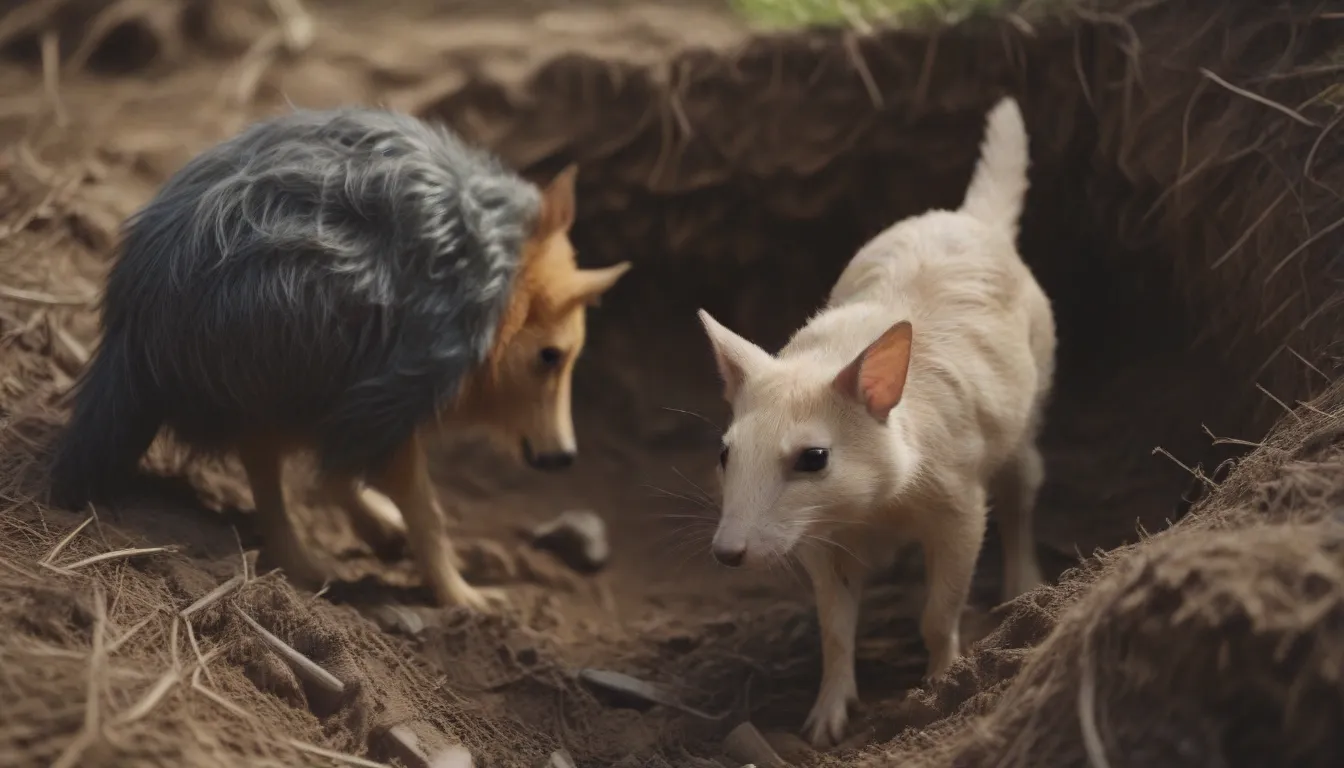Identifying the Culprit: What Animal is Digging Holes in Your Yard?

Have you ever stepped outside to enjoy your beautifully manicured yard, only to discover a series of pesky holes scattered throughout the grass? It can be frustrating to see all your hard work disrupted by some mysterious animal. But fear not, as I’m here to guide you through the process of identifying the critter responsible for the damage and how to prevent them from wreaking havoc in your yard.
Which Animals Might be the Culprits?
It can be challenging to pinpoint exactly which animal is responsible for the holes in your yard without witnessing the damage firsthand. However, there are some common suspects that may be causing trouble in your lawn:
- Raccoons: These masked bandits are known for peeling up freshly laid sod to feast on grubs hiding beneath the surface.
- Chipmunks: These energetic rodents are expert scavengers, known for digging up insects, seeds, bulbs, and even fruits like strawberries, plums, and apples.
- Squirrels: While fun to watch, squirrels can cause damage by burrowing, hunting for insects, or digging up buried nuts.
- Rats or Mice: These rodents seek shelter and warmth below ground, often nesting in yards and looking for food sources near your home.
- Voles: Often mistaken for mice, voles can wreak havoc on yards and gardens by digging shallow burrows and damaging vegetation.
- Moles: These underground dwellers leave behind distinctive mounds of dirt and tunnels as they search for insects to feast upon.
- Rabbits: With their voracious appetite for plants, rabbits may burrow underground and damage your landscaping in search of a meal.
Signs of an Animal Digging in Your Yard
If you notice holes in your yard, the next step is to determine whether they are burrowing holes or foraging holes. Burrowing holes will be deeper and likely involve tunneling systems, while foraging holes will appear as if parts of your lawn have been scratched away. Look for signs of animal activity in areas like wood piles, brush, shrubs, dense vegetation, and clutter, as these may serve as hiding spots for digging animals.
What Drives Animals to Dig in Your Yard?
Animals are likely digging in your yard for one of two reasons:
- Foraging: Some animals, like squirrels and rabbits, dig in search of food, particularly during the fall and early winter when they are stocking up for the colder months.
- Shelter: Other animals, such as rats, mice, and voles, may be digging burrows in your yard for shelter and protection from predators.
While some level of digging activity is natural, excessive damage can become a recurring issue. By reducing hiding spots and eliminating food sources, you can discourage animals from making your yard their home.
How to Prevent Digging Animals in Your Yard
While identifying the culprit behind the holes in your yard is helpful, you can take steps to deter all types of digging animals, regardless of their specific identity. Here are some methods you can employ to prevent unwanted guests from causing further damage:
- Eliminate Food Sources: Remove bird feeders, fallen fruit, and open compost piles that may attract animals looking for a meal.
- Trim Vegetation: Clear away dense vegetation, shrubs, and clutter where animals may hide or nest.
- Fence Off Areas: Install fences to restrict access to certain parts of your yard where animals shouldn’t be.
- Seek Professional Help: If the damage is extensive or persistent, consider contacting a wildlife removal specialist to address the issue before it escalates.
By implementing these strategies, you can protect your yard from unwanted digging animals and maintain a beautiful outdoor space for you and your family to enjoy.
Remember, while it can be frustrating to discover holes in your yard, it’s essential to handle the situation responsibly and in accordance with local wildlife laws. By taking proactive steps to deter digging animals and seeking professional assistance when needed, you can keep your yard looking its best and minimize the impact of pesky critters on your property. Coexisting with Garden Wildlife.UFL Extension Raccoon Damage Identification.Internet Center for Wildlife Damage Management Armadillos.Wildlife Damage Management





